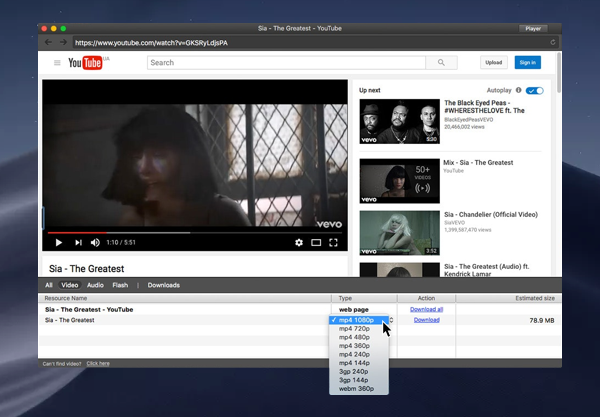Conspiracy Theories About Myself Mac OS
Despite an unparalleled proliferation of information (or perhaps because of it), many people continue to believe in myths or false narratives that exaggerate, idealize, or misconstrue reality. Indeed, recent surveys have suggested that many people in different parts of the world subscribe to ‘conspiracy theories’, while denying ‘official’ or mainstream accounts of many important phenomena. This is increasingly recognized as an important concern for civic society because of the potential of conspiracy theories to sow discord, violence, and public mistrust, while diverting attention from political issues of real significance and undermining democratic discourse.
In an increasingly globalised world, and against the background of turmoil caused by financial crises, war, and international terrorism, the need to understand the nature and roots of conspiracy theories has become increasingly urgent. Yet, contemporary scholarly research on conspiracy theories remains piecemeal. Influenced by Richard Hoftstadter's discussion of the ‘paranoid style’ in American politics, many commentators continue to view conspiracy theories as the products of individual or collective psychopathology. However, it is unlikely that such a view can provide a comprehensive understanding of conspiracy theories, particularly in view of the fact that such theories are so widespread globally.
The goal of this Research Topic is to bring together original research on the psychology of conspiracy theories, with a view to providing a comprehensive understanding of the place and role of conspiracy theories in modern societies. Our aim with this volume is to welcome original research that seeks to understand the ways in which conspiracy theories emerge and are transmitted from cultural, social, and idiographic perspectives. In addition, we seek to facilitate discussions of the ways in which scholars and policy-makers can begin to formulate interventions that counter the deleterious effects of conspiracy theories on civic society. We are convinced that such a volume is both timely and will be of interest to a wide range of scholars, as well as the wider community.

- Music, Film, TV and Political News Coverage. Two-episode, four-hour film will feature interviews with Gene Simmons, Paul Stanley, Dave Grohl, and more.
- When 1998’s original iMac ditched the 3 1/2-inch floppy drive — a technology introduced 14 years earlier by the first Mac — it provoked a fair amount of anguish and even conspiracy theories. But within half a decade or so, the floppy was gone everywhere.
- It’s genuinely impressive how far fans will go to decode, decipher and discuss the many aspects of a band’s lore. From picking through HTML codes, to rewatching old music videos for easter eggs and using fan forums to share clues, hours and hours go into piecing together these theories to give a band’s music a deeper meaning.
Pippin is based on the Apple Macintosh platform, including the classic Mac OS architecture. Apple built a demonstration device based on Pippin called 'Pippin Power Player,' and used it to demonstrate the platform at trade shows and to the media, in order to attract potential software developers and hardware manufacturers.
Important Note: All contributions to this Research Topic must be within the scope of the section and journal to which they are submitted, as defined in their mission statements. Frontiers reserves the right to guide an out-of-scope manuscript to a more suitable section or journal at any stage of peer review.
A downloadable queer brawler game for Windows and macOS
Dream Hard is a short two-player co-op queer-themed beat 'em up game. In it, you must defend the local NYC queer performance space The Dreamhouse from hordes of fascists. The retro-style 3D graphics imagine a history of queer punk games in the late 1990s, connecting those politics of resistance to today.
Conspiracy Theories About 9 11
For more info, see my artist statement 'Dream Hard as queer brawler defense'
This game was made in 1 month for the The Dreamhouse x Death by Audio Arcade collaboration jam in May 2018, where DBAA built a unique 'DreamboxXx' arcade cabinet for The Dreamhouse, with specially crafted games made by local queer designers and developers.
- can you defeat all 8 waves of white supremacists?
- features procedurally-generated LGBTQ people, over a million different queer folks are possible, wow
- two different fighting styles to master!!
- players: 0-2 (AI will play if left alone, and might even beat the game!)
- typical runtime: 5-15 minutes
- controls: keyboard, most gamepads supported
- platforms: Windows, MacOS
- credits: game by Robert Yang, music by Renim, in-game font by Patrick Lauke
press: Gothamist: 'Step Inside The Dreamhouse, Where DIY Arcade Games Meet Queer Culture' // all irl photos on this page by Walter Wlodarczyk
other games made for The Dreamhouse: Local Informant by Haitham Ennasr (and more to come), Queer Space by Eddie Cameron, Conspiracy Theories About Myself / ORBTOWN by Juno AM + Josie Brechner, Safe Space by Ellie, a day at the beach by Nicole Leffel, Raunchy Feast XXX by Fernando Ramallo
| Status | Released |
| Platforms | Windows, macOS |
| Rating | |
| Author | Robert Yang |
| Genre | Action |
| Made with | Unity |
| Tags | Beat 'em up, brawler, Co-op, LGBT, local, Local Co-Op, Local multiplayer, Queer |
| Average session | A few minutes |
| Languages | English |
| Inputs | Keyboard, Xbox controller, Gamepad (any), Joystick, Playstation controller |
| Multiplayer | Local multiplayer |
| Player count | 1 - 2 |
| Mentions | itch.io Recommends: relaxing cuties and... |
Purchase
In order to download this queer brawler game you must purchase it at or above the minimum price of $5 USD. You will get access to the following files:

Conspiracy Theories About The Government
Development log
Current Conspiracy Theories
- The DreamboxXx Bundle: custom-made LGBTQ arcade gamesJun 24, 2018